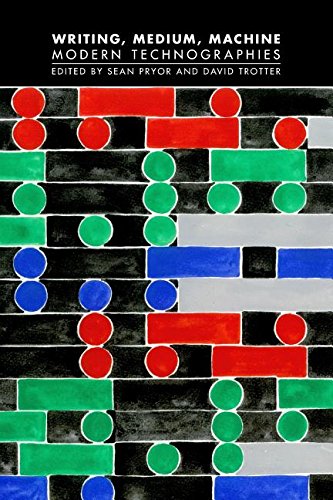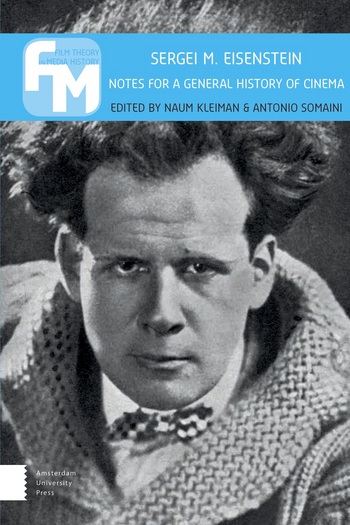Sean Pryor, David Trotter (eds.): Writing, Medium, Machine: Modern Technographies (2016)
Filed under book | Tags: · literature, machine, media, media archeology, media technology, technology, theory, writing

“This is a collection of thirteen scholarly essays which explores the mutual determination of forms of writing and forms of technology in modern literature. The essays unfold from a variety of historical and theoretical perspectives the proposition that literature is not less but more mechanical than other forms of writing: a transfigurative ideal machine. The collection unearths representations in literature and film of a whole range of decisive technologies from the stereopticon through census-and slot-machines to the stock ticker, and from the Telex to the manipulation of genetic code and the screens which increasingly mediate our access to the world and to each other. It also investigates concepts which articulate the relation between writing and technology: number, measure, encoding, encryption, the archive, the interface.”
Contributors: Ruth Abbott, John Attridge, Kasia Boddy, Mark Byron, Beci Carver, Steven Connor, Esther Leslie, Robbie Moore, Julian Murphet, James Purdon, Sean Pryor, Paul Sheehan, Kristen Treen.
Publisher Open Humanities Press, 2016
Technographies series
Creative Commons BY-SA 4.0 License
ISBN 9781785420061
223 pages
PDF (updated on 2016-11-12, with bookmarks, metadata and compressed, via Malcolm Dean, 2 MB)
PDF (from publisher, 3 MB)
Sergei M. Eisenstein: Notes for a General History of Cinema (2016)
Filed under book | Tags: · cinema, film, film history, film theory, media archeology, montage

“This comprehensive volume of Eisenstein’s writings is the first-ever English-language edition of his newly discovered notes for a general history of the cinema, a project he undertook in 1946-47 before his death in 1948. In his writings, Eisenstein presents the main coordinates of a history of the cinema without mentioning specific directors or films: what we find instead is a vast genealogy of all the media and of all the art forms that have preceded cinema’s birth and accompanied the first decades of its history, exploring the same expressive possibilities that cinema has explored and responding to the same, deeply rooted, “urges” cinema has responded to. Cinema appears here as the heir of a very long tradition that includes death masks, ritual processions, wax museums, diorama and panorama, and as a medium in constant transformation, that far from being locked in a stable form continues to redefine itself.
The texts by Eisenstein are accompanied by a series of critical essays written by some of the world’s most qualified Eisenstein scholars.”
Edited by Naum Kleiman and Antonio Somaini
Publisher Amsterdam University Press, Amsterdam, 2016
Creative Commons BY-NC-ND 3.0
ISBN 9789048517114
545 pages
Darren Wershler-Henry: The Iron Whim: A Fragmented History of Typewriting (2005)
Filed under book | Tags: · history of literature, literature, media archeology, typewriter, writing

“The Iron Whim is a history of writing culture and technology. It covers the early history and evolution of the typewriter as well as the various attempts over the years to change the keyboard configuration, but it is primarily about the role played by this marvel in the writer’s life. Darren Wershler-Henry populates his book with figures as disparate as Bram Stoker, Mark Twain, Franz Kafka, Norman Mailer, Alger Hiss, William Burroughs, J. G. Ballard, Jack Kerouac, Hunter S. Thompson, Northrop Frye, David Cronenberg, and David Letterman; the soundtrack ranges from the industrial clatter of a newsroom full of Underwoods to the more muted tapping and hum of the Selectric. Wershler-Henry casts a bemused eye on the odd history of early writing machines, important and unusual typewritten texts, the creation of On the Road, and the exploits of a typewriting cockroach named Archy, numerous monkeys, poets, and even a couple of vampires. And by broadening his focus to look at typewriting as a social system as well as the typewriter as a technological form, he examines the way that the tool has shaped the creative process.”
Publisher McClelland and Stewart, Toronto, 2005
ISBN 0771089252
331 pages
Reviews: Joshua Glenn (New York Times, 2007), Christine Mitchell (Canadian Journal of Communication, 2009), Karl Jirgens (Canadian Literature, 2011).
PDF (3 MB)
Comment (0)
